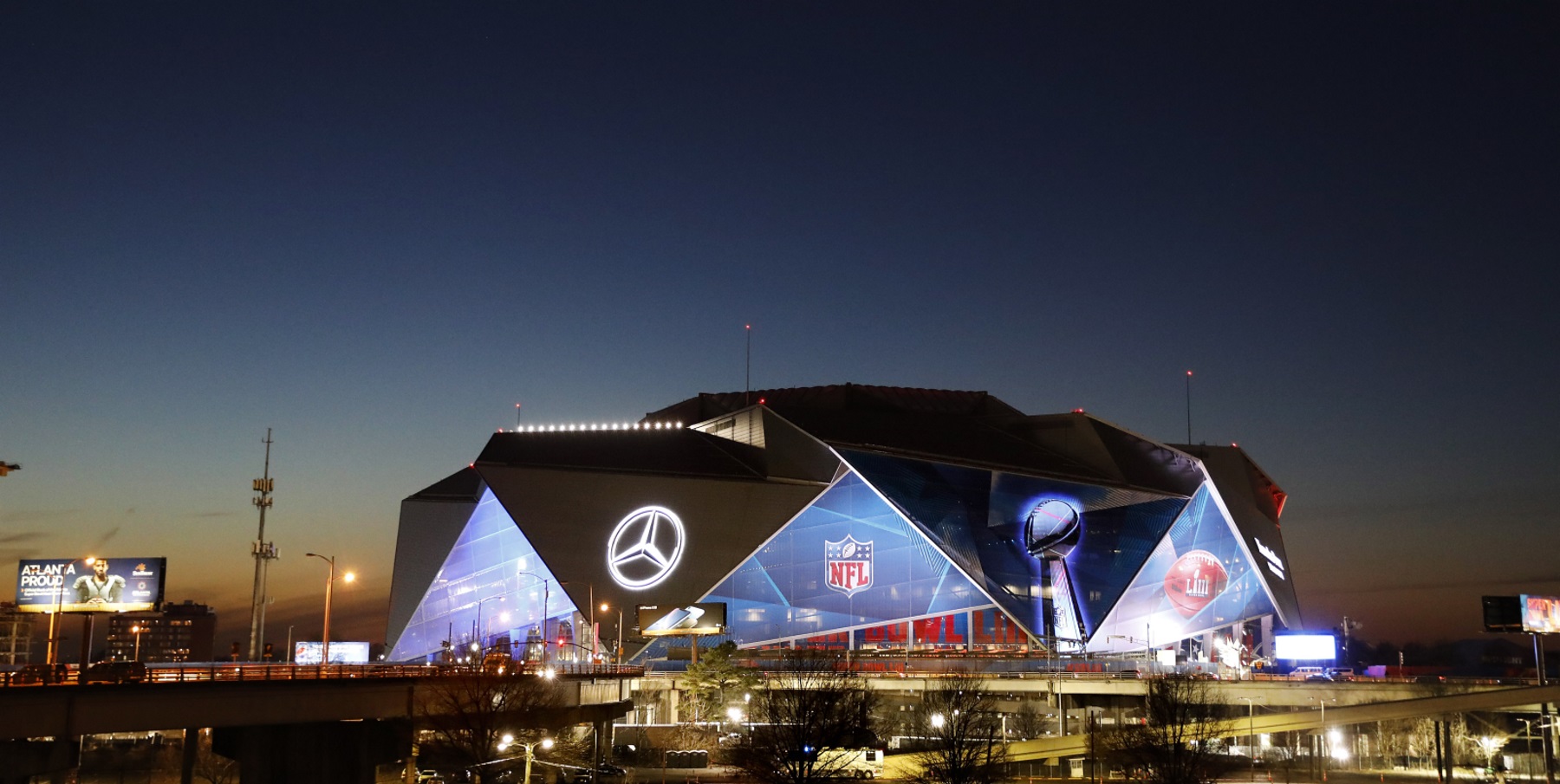The Super Bowl — The Biggest US Sex-Trafficking Event: Is That A Myth?

As Atlanta prepares to host Sunday’s Super Bowl, the sporting event, in recent years, continues to also be described as the largest sex-trafficking event in the country. Advocates and researchers seem to agree that description is impossible to quantify at best or simply unfounded. However, regardless of big events, human trafficking is a serious reality, one expert says.
David Goldman / Associated Press
You might have seen the headlines: the Super Bowl is the largest sex-trafficking event in the country. The moniker has followed the game around in recent years.
It’s at best unclear whether that’s even true, but it might not matter. Advocates are taking the platform and running with it.
Nita Belles is the founder of In Our Backyard, a nonprofit based in Oregon that fights human trafficking. She takes me to a room where a dozen people quietly type at laptops. They’re volunteers she brings to each Super Bowl host city.
“They’re working from early morning until late at night chasing down information to recover kiddos and give information to law enforcement,” she said.
They’re tracking things like online ads and missing children postings. Belles’ team has been in Atlanta for about a week. It’s her 10th Super Bowl.
But why Super Bowls?
Belles said it started in 2011 with then-Texas Attorney General Greg Abbot. As Texas was getting ready to host the game, he called the Super Bowl the “single largest human trafficking incident in the U.S.”
Is that true?
Belles called the idea a myth, and she’s not alone. Advocates and researchers seem to agree it is impossible to quantify at best or simply unfounded.
Lauren Martin directs the Urban Research and Outreach-Engagement Center at the University of Minnesota. She specializes in sex-trafficking and sex-trading research.
“The evidence that we’ve found really does not suggest that the Super Bowl has any unique or special connection to sex trafficking,” she said.
She looked into it last year when Minneapolis hosted the Super Bowl. She called the idea an unfounded claim, especially because good data on sex trafficking is hard to come by.
“It’s a really difficult topic to do research on because it’s hidden, illegal, stigmatized, all of those things,” she said.
But anecdotal evidence does exist.
Deborah Richardson directs the International Human Trafficking Institute at the Center for Civil and Human Rights in Atlanta.
She also calls the Super Bowl connection a myth. “But what we do know is whenever you have large events where primarily men come into a place, a city, with a lot of disposable money, you’re going to have human trafficking,” she said.
She’s heard that a Georgia poultry convention, for example, may have prompted a spike.
Regardless of big events, human trafficking is a serious reality, she said. Per the Urban Institute, Atlanta has the largest underground economy for commercial sex in the country, which also includes trafficking.
And we haven’t had a Super Bowl for 19 years.
“If we only focus on human trafficking in connection to the Super Bowl, it gives people an excuse to forget about human trafficking, not think about it, other times of the year when it happens 365 days a year,” Richardson said.
That’s a risk, Martin admits: “Hype, if it’s misplaced, can damage credibility for efforts, and it can also give the false impression that we only care about sex trafficking around the Super Bowl.”
In fact, according to Dominique Roe-Sepowitz, there’s evidence that trafficking at the Super Bowl may have been disincentivized by a Super Bowl-timed movement and its media coverage. She’s a professor at Arizona State University who runs its Office of Sex Trafficking Intervention Research. She did research on the Super Bowl topic in advance of Arizona hosting the game a few years ago.
Her research showed a drop in trafficking activity in New Jersey during the Super Bowl in 2014, perhaps she said because 100 people were arrested for trafficking the day before it.
“The problem is those trafficking victims are just being brought somewhere else, instead,” she said, and the numbers jumped back up after the game.
But still, the idea persists. Headlines on sex trafficking follow the Super Bowl around and have appeared in Atlanta, too.
Press conferences and events have abounded. Richardson said ultimately it just gives them a bigger platform to do the work they’re doing all year long. Her group trained all the Super Bowl volunteers, for example, and the Super Bowl Host Committee was one of the founding partners of the Metro Atlanta Coalition to End Human Trafficking, which Richardson’s group leads.
Amanda Koonjbeharry runs No Wrong Door, an anti-trafficking group for Hennepin County in Minneapolis. She helped lead anti-trafficking efforts around last year’s Super Bowl. The attention was productive, she said.
“We saw this as an opportunity to have a platform like no other.”
She explained it brought stakeholders together in an unprecedented way and, most importantly, it got people paying attention.
“Once you educate somebody about something, that knowledge and that awareness doesn’t go away,” she said.
Koonjbeharry does think there is some risk in playing into the myth because it can consolidate money and time away from year-round efforts. Ironically, she said, there’s also a risk of “backlash” if organizations don’t do anything around the Super Bowl.
But Belles doesn’t think using the Super Bowl myth causes harm. That’s why she keeps traveling to the host cities every year.
“You can whine about what’s going on, or you can take that and make lemonade out of lemons,” she said. “And I think that’s what we have to do.”
And using the platform works, she said.
“Every Super Bowl venue that we’ve been to, this hype causes the nonprofits to work together, it causes law enforcement to get extra training,” she said.
“All over, people see me and think Super Bowl. And I don’t care. It just gives me an opportunity to tell them the truth about human trafficking.”
The truth that it’s a serious, year-round problem that’s hard to quantify.








